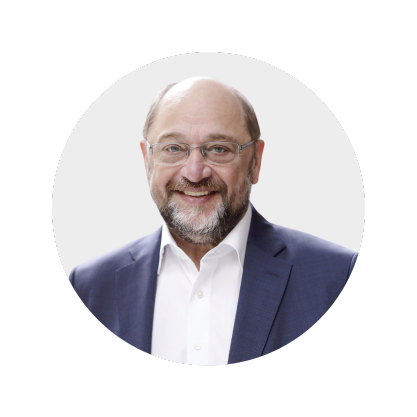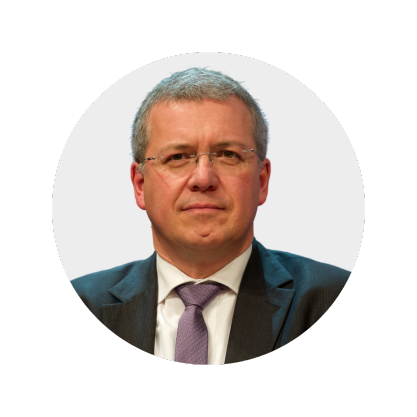Slovakian Prime Minister Robert Fico has divided the country. But the reactions in Slovakia to the attack on him are unanimous. Everyone, starting with President Zuzana Čaputová, expressed deep shock on Wednesday after the assassination attempt on the 59-year-old. The assassination was strongly condemned across the political spectrum, and Fico, who was fighting for his life, was wished all the best. “It’s not just about one person”, says the president. “It’s about democracy.”
Numerous politicians abroad also expressed their shock. Among them was Commission President Ursula von der Leyen, who spoke of a “heinous” attack. “Such acts of violence have no place in our society and undermine democracy, our greatest common good“, she wrote on X. German Chancellor Olaf Scholz stated: “Violence must have no place in European politics.” The news of the cowardly assassination attempt on Robert Fico shook him deeply. A feeling that many others share with him with their comments on X or in other social networks, writes our correspondent Hans-Jörg Schmidt.
Despite the shocking news, I wish you a good day!

Slovakian Prime Minister Robert Fico recently complained about a “climate of hostility”. It could not be ruled out that such a climate could lead to violence at some point. Fico’s statements are now being recalled after the head of government was critically injured by several shots in the small town of Handlová on Wednesday.
In the evening, Slovakian Interior Minister Sutaj Estok stated that the attack was “politically motivated”. The decision by the suspected 71-year-old perpetrator was made shortly after the presidential elections. Estok was referring to the elections in April.
What happened? The prime minister, who was about to shake a few hands with supporters after a government meeting on Wednesday, is hit in the stomach and hand from close range and falls to the ground. Security guards attend to him, carry him frantically to a government limousine and speed away. Fico cannot be helped at the local hospital. His injuries are obviously too serious. A helicopter is ordered. The doctors examining Fico decide that the prime minister should not be expected to take the long flight to the capital Bratislava. The helicopter therefore takes off for the nearest hospital in Banská Bystrica. Fico is responsive during the flight.
The emergency doctors manage to stabilize the seriously injured premier. But his life is in danger. Fico is then operated on in hospital. An information embargo is imposed on his actual condition. The suspected perpetrator, a 71-year-old man from southern Slovakia, who appears confused, was arrested on the spot on Wednesday and taken away.
The social situation in Slovakia is currently tense. After the attack, it is not only Fico’s supporters in Slovakia who are in a state of shock. Fico is a controversial figure in the small EU and NATO country under the High Tatras. Six months ago, he won the last parliamentary elections and was subsequently elected head of government for the fourth time.
He once played a positive role as prime minister and led Slovakia into the eurozone. But Fico also polarized society like no other Slovakian politician. He and his closest confidants were alleged to have links to the mafia and to extremely dubious Slovakian entrepreneurs. One of these allegedly ensured that the young investigative journalist Ján Kuciak and his fiancée were quite literally executed in 2018.
Fico was subsequently forced to resign. In his current fourth term in office, critics say he has pulled out all the stops to protect his friends suspected of corruption from justice. He dissolved the special judicial bodies responsible for this. Fico’s stance on the Russian war of aggression against Ukraine is also controversial, as he is considered pro-Russian.
The government meeting focused on Fico’s second domestic political target: The public media, which has been the real opposition in Slovakia for years. The fear is that Fico wants to bring them “to heel”. On Wednesday afternoon, the parliamentary position had once again called for a large protest demonstration in the capital Bratislava against the plans. After the news of the attack, the organizers canceled the rally.
It is currently unclear exactly what prompted the alleged perpetrator to carry out the attack. Several Slovakian media outlets reported on Wednesday evening that he was a 71-year-old from the village of Levice. He is said to be a poet, founder of a writers’ club, among other things, and also legally possessed a weapon. According to several media outlets, the alleged attacker had previously attracted attention with racist texts. The news portal Aktuality.sk writes that the man had contacts with the now disbanded paramilitary group Slovenský Branci. The group had published texts on its website in which the suspected shooter had criticized the state and migrants. Hans-Jörg Schmidt
When the member states in the Telecoms Council adopt the final version of the AI Act on May 21, many questions will still remain unanswered. One of them: Who will head the newly created AI Office in the future? Filling this leadership position is no trivial matter. After all, the AI Office is not only intended to be the center of AI expertise in the EU. It will also play a key role in the implementation of the law, especially when it comes to general-purpose AI (GPAI). It will also develop guidelines, provide clarity on the implementation of the AI Act, ensure harmonized application within the EU and promote international cooperation.
The Commission has already started to set up the AI Office. However, it is still unclear who will take the lead and determine its direction. A month ago, MEPs Svenja Hahn (FDP), Kim van Sparrentak (Greens) and Axel Voss (CDU) wrote to the Commission complaining about the unclear and non-transparent recruitment process. They wanted to know how the procedure works and how the Commission intends to involve Parliament in the search for the best candidate “for one of the most important tasks in enforcing the AI Act”. To date, the MEPs have not received an answer.
Various names are being bandied about in Brussels. Lucilla Sioli, Director of the Artificial Intelligence and Digital Industry Department (CNECT.A), who has been involved in the development of the law from the outset, and Head of Unit Kilian Groß (CNECT.A.2). Dragoș Tudorache (Renew) is also named as a candidate. He negotiated the AI Act as Parliament’s co-rapporteur and will no longer have a mandate in the new Parliament. The name Marietje Schaake is also circulating. The Dutchwoman was a member of the EP from 2009 to 2019 and now works on cyber policy and human-centered artificial intelligence at Stanford University.
Parliamentary circles say that the recruitment process is chaotic and that Director General Roberto Viola is probably sorting it all out himself. Others are saying that, for political reasons, neither a German nor a French candidate will be chosen. In fact, some fear that it will not be a professional decision but a political one.
They hope that things don’t go the way they did with the appointment of Markus Pieper as SME representative. “We don’t want all this to happen under the table”, says Parliament. “We want the best person for the job.”
The AI Office is to be located at the Commission. Around 60 employees currently work in the two responsible units (CNECT.A.1 and A.2). However, according to parliamentary circles, they currently do not even know in which direction they should work. The AI Act has left important questions unanswered. The task now is to draw up the guidelines. What’s more, the AI Office will not only need administrative experts, but also AI experts. But these are hard to come by.
“The role of the AI Office is extremely important”, says Vanessa Cann, co-founder of AI start-up Nyonic and board member of the German AI Association. AI companies want three things above all: Firstly, what happened with the GDPR, namely a very different interpretation of the rules in the various member states, must not happen. “The application of the AI Act must not be a question of interpretation“, says Cann on the sidelines of the Rise of AI Conference in Berlin. A central European unit where everything comes together is therefore extremely important.
Secondly, the AI Office needs both technical expertise and practitioners with implementation know-how. “It must not become a civil service graveyard“, warns Cann. Finally, companies want more speed. “The sooner we have clarity here, the better.” There is a lot of uncertainty at the moment, especially for companies in the health and HR sectors, which will be heavily affected by regulation. As long as there is uncertainty, no one will invest in AI.
However, the demand for speed in finding a leader could become difficult. This is because the Commission has stated that no organizational issues are currently being decided before the elections and the formation of the new Commission. Kilian Groß is filling the position of Director on an interim basis and Lucilla Sioli is still Director. So there is no urgency. Ideas for new organizational charts could come in the autumn and then such positions could also be advertised. Parliament and the companies see things differently.
After all, the Bundestag has already dealt with the topic in Germany. A hearing in the Digital Committee on the national scope for implementing the AI Act also addressed the question of how the German side could best cooperate with a future AI Office. In a written statement, the German AI Association recommends, among other things “swiftly establish standardized and permanent inter-agency communication and collaboration processes”.
Incidentally, Spain is already much further ahead and was the first EU member state to set up a national AI Supervisory Authority (AESIA) in August 2023. What’s more, the selection process for the “Director of the Spanish Agency for the Supervision of Artificial Intelligence” has been underway there since April 2024. Other countries will follow suit – and compete with each other in the search for the best candidates.
The apps of online providers Temu, Shein and AliExpress lead the download charts in Germany and Europe. These Chinese platforms ship most of their products duty-free to Europe. Cross-border e-commerce (CBEC) threatens to become another trade problem for the EU market.
Most of these inexpensive exports reach the EU market through direct shipping from China, primarily via Belgium and the Netherlands. About 19 percent of these shipments arrive in Liège, Belgium, according to the EU trade newsletter “Soapbox”, based on Eurostat data.
Similarly, 19 percent of the packages enter through the Netherlands, 16 percent are processed by French customs and 13 percent through Spanish customs. Chinese customs classify these items under HS 9804, defining them as low-cost items under simplified customs procedures – or as “Soapbox” author Rafael Jimenez Buendia aptly puts it: “cheap stuff”.
The Chinese platforms attract customers with clothing, electronics and household goods at such low prices that European consumers should be alarmed. They should ask: How is it even possible to produce fairly and sustainably at these dumping prices while adhering to international labor protection conventions?
Classification under HS 9804 by Chinese customs includes items valued under 150 euros, making them duty-free. However, they do not bypass VAT. It remains unclear what exactly Chinese customs classify under HS 9804. Is every item genuinely worth less than 150 euros? A data match on both sides is difficult, writes Jimenez Buendia.
Buendia believes that the flood of cheap goods is being directed toward Europe with the approval of the Chinese state. He even sees this as an application of Xi Jinping’s new slogan of “new productive forces” that he wants to unleash in China. What exactly this concept entails is still relatively open. What is clear is that it is about economic growth and innovation to stimulate the domestic economy, with exports being central.
In the context of Chinese exports, overcapacities have recently become a central point of contention in trade between China and the EU. The main disputes are over electric cars and solar panels from China. The country produces more goods than there is demand for and drives down prices.
This is also evident at the EU customs offices, which seem overwhelmed by the flood of packages. According to the European Commission, two billion packages with a value below the 150-euro duty-free threshold were shipped to the EU from non-EU countries in 2023, mostly from China. The Federal Network Agency in Germany reportedly inspected only about 5,000 shipments in 2023. Of those inspected, 92 percent were not approved.
Chinese suppliers often declare a false value at customs: Incorrectly declared packages with a value higher than 150 euros or an item shipment split into multiple packages are not uncommon, as an investigation by SWR in February revealed at customs in Liège, Belgium.
Will the next overcapacity problem from China be that of “cheap stuff”? The fundamental issue, says Björn Ognibeni, an expert on global e-commerce trends, is the concept of overcapacity. “Germany as an export champion also operates on overcapacity. That has always been our business model. And for that, we have very gladly used very cheap precursor products from China to produce more profitably. Only now, more and more finished products are coming from there, and that is a problem for us.”
Moreover, one must consider why Chinese platforms can offer the same goods cheaper than Amazon. The manufacturing process of the products hasn’t suddenly changed just because the items are sold on Amazon or other Western providers. “They are often the same products from the same factories.” Where this is the case, Ognibeni sees more of a fear of competition from China among Western companies.
Chinese companies have simply outpaced German suppliers in terms of the customer shopping experience and are much more innovative. “This doesn’t mean that there isn’t a sustainability problem,” says Ognibeni. However, the same product isn’t better just because it is sold via Amazon instead of Temu. “Both channels have the same problem, and only we consumers can solve it.”
EU regulatory authorities are currently considering abolishing the 150-euro duty-free limit. A decision is expected by 2028.
Online fashion retailer Shein is at the forefront of efficiency in online retail. For example, it offers design clothing on its platform that doesn’t actually exist yet. It is only produced when enough customers order the item. This doesn’t apply to everything Shein sells. On the other hand, Temu, which mainly sells household goods and electronics, likely offers items that already exist.
In the first quarter of the year, cross-border e-commerce increased by about ten percent according to official figures. E-commerce warehouse exports abroad also grew by 11.8 percent. According to Chinese customs data, China’s total CBEC trade amounts to 80 billion US dollars, with 62 billion for exports and 18 billion for imports.
May 21-24, 2024; Florence (Italy)
EUI, Conference EUI Climate Week 2024
The European University Institute (EUI) offers a series of events focusing on key implementation issues related to the EU Green Deal in the context of a changed geopolitical situation, including the emission trading system and investments in renewable energy, energy efficiency and storage.
. INFO
May 21, 2024; 11 a.m., online
SolarPower Europe, Seminar Powering the Poll: Mobilizing the clean energy workforce to vote in the EU elections
Ahead of the European elections, representatives from the European Commission and the European Parliament will explain what the EU has done to support the energy transition, how the momentum can be kept for the next term and how to mobilize voters. INFO & REGISTRATION
May 21, 2024; 2:30-3:45 p.m., online
Eurogas, Seminar CCS for a competitive net-zero EU
The webinar will address the state of play of carbon capture and storage in the EU and the challenges and opportunities for the EU energy sector and energy-intensive industries to reach net-zero emissions by 2050. INFO & REGISTRATION
May 21, 2024; 4-5 p.m., online
All Digital, Seminar Let’s talk about GenAI! Enhancing equity and inclusion with the use of AI
As part of a series that brings together experts in the field of Artificial Intelligence with educators and teachers, this session will discuss the use of AI in enhancing equity and inclusion. INFO & REGISTRATION
The Netherlands is getting a right-wing coalition government. Just under six months after the parliamentary elections, the radical right-wing Geert Wilders and three other parties have reached a coalition agreement, as previously expected. “We have an agreement”, said Wilders on Wednesday in The Hague. On Wednesday evening, however, it was still unclear who would become the new prime minister. However, former science minister and Social Democrat Ronald Plasterk is considered a hot candidate for the post.
In addition to Wilders’ Party for Freedom (PVV), the future governing parties are the right-wing liberal VVD of former Prime Minister Mark Rutte, the new right-wing conservative NSC and the right-wing populist farmers’ party BBB. The talks had proven difficult.
The plan is to form a loose alliance with a team of ministers, around half of whom are non-party experts. The parliamentary groups, which still have to give their approval, should be informed first. In order to clear the way for a government, 60-year-old Wilders had put controversial demands such as a ban on mosques on hold and declared his willingness to relinquish the office of head of government. The parliamentary group leaders of the other three parties also remain in parliament. dpa
The Franco-German Parliamentary Assembly wants to improve cooperation with Poland on energy matters. The governments in Paris and Berlin should set up an “Energy Transition Platform Weimar Triangle” for this purpose, according to a joint paper by German and French MPs, which is exclusively available to Table.Briefings. Greater cooperation between the operators of electricity and gas grids in the three countries could save money, increase energy security and support climate neutrality. The Parliamentary Assembly is expected to adopt the energy sovereignty working group’s draft in June.
“Together, Germany and France must be the eco-engine for a European energy union and a climate-neutral EU. If we work together, we can achieve a lot and integrate other partners – including Poland via the Weimar Triangle, for example,” said working group coordinator Andreas Jung. The Assembly consists of 50 members of the German Bundestag and 50 members of the French Assemblée Nationale.
The governments in Berlin and Paris are also to develop “impulses for a Franco-German and European strategy up to 2025 for the promotion of geothermal energy” and clarify legal insurance matters and aspects of claims settlement, particularly in a cross-border context. For instance, deep drilling near Vendenheim in Germany was halted in 2020 after earthquakes.
Also on the agenda: “Proposals for a common European hydrogen strategy by 2025”. The MPs’ position slightly differs from that of the government in Paris, which has spoken out in favor of only pursuing a target for “decarbonized energy,” which could come at the expense of renewable energies. Regarding the hydrogen strategy, the MPs now state that priority should be given to hydrogen based on renewable energies. They also call on the governments of both countries to “work ambitiously on the implementation of the amended European renewable energy expansion targets of 42.5 percent of energy consumption from 2030.”
“I am proud that the French and German MPs have reached an agreement on an issue that is often said to be a source of tension between the governments of our countries. This proves that unity in diversity is possible and necessary in energy sovereignty,” French MEP Frédéric Petit (Mouvement Démocrate) commented on the paper. ber
The European economy is only gaining momentum very slowly. EU-wide GDP is expected to grow by one percent this year and 0.8 percent in the eurozone. Things should look a little better in 2025, with growth forecasts of 1.6 percent for the EU and 1.4 percent for the eurozone. This was announced by EU Economic Affairs Commissioner Paolo Gentiloni when this year’s spring forecasts were published yesterday, Wednesday.
“Private consumption will drive the economic upturn thanks to the continued strong labor market and rising real wages”, said Gentiloni. The labor market figures also look very appealing, with the unemployment rate at a record low and a high proportion of people in employment. However, the Economic Affairs Commissioner is concerned that people are saving too much. The EU-wide savings rate of 13.5 percent is significantly higher than the figures before the pandemic.
The Commission does not expect investment to stimulate growth this year. As the debt rules have been in force again since this year, member state governments are required to reduce their public deficits. In addition, the high central bank interest rates are reducing construction activity and the granting of bank loans.
The Commission considers geopolitical developments to be a major risk over the next two years. Uncertain Chinese demand and a possible escalation of trade disputes between China, the USA and the EU are major question marks hanging over the export-oriented economies of many EU countries.
The prime example of these export-oriented economies is Germany, which is virtually stagnating this year with a forecast growth of 0.1%. Only Finland and Estonia are expected to see even lower growth. The Commission forecasts GDP growth of 1.0% for Germany in 2025. The Commission identifies the low level of investment activity in Germany, which remains well below the pre-pandemic level, as a problem.
The German Council of Economic Experts, which also published an economic forecast on Wednesday, deviates only slightly from the Commission’s assessment. It expects growth of 0.2 percent in 2024 and GDP growth of 0.9 percent in 2025. Ulrike Malmendier assumes that the ECB will lower its key interest rates in the summer. “The resulting improvement in financing conditions for companies will boost private investment”, she says in a press release. However, the supporting effect on demand is not likely to be felt until 2025. jaa
The European Commission and seven other major EU institutions have signed the founding agreement for the new ethics body. The eight-member body will help to strengthen integrity, transparency and accountability in the EU institutions and monitor compliance with common standards. The work of the group, whose chair rotates annually, will be supported by five independent experts.
As promised, the launch was successful before the European elections, said EU Commissioner Věra Jourová at the signing ceremony in Brussels on Wednesday. Jourová had submitted a proposal for the new body in June 2023 – years late, as critics complain. “Now all but one” are on board, said Jourová. The European Council does not want to participate initially, but could join later.
Praise also came from the European Court of Auditors. “The current interinstitutional initiative shows that there is a will to create a common culture of ethics that will further strengthen citizens’ trust in the EU institutions”, said Court of Auditors President Tony Murphy. The Court of Auditors had already called for better and common ethics rules in 2019. It received backing from the European Parliament in particular.
Parliament President Roberta Metsola sees the new committee as a “starting point”. It creates a “framework” that can be built on. Parliament has recently been rocked by several scandals – from the so-called Qatargate 2022 to reports of Russian influence and Chinese espionage. The largest parliamentary group, the conservative EPP, had also spoken out against the new ethics committee as it would jeopardize the free mandate.
The MEPs involved in the negotiations, Katarina Barley (SPD) and Daniel Freund (Greens), expressed their satisfaction. “It is striking that we had to push through this transparency initiative against the votes of the EPP”, said Barley. CDU MPs had tried to torpedo the initiative with false information right up to the end. This was “absolutely unacceptable”. However, the new committee will soon act as the “uncompromising guardian of the rules for MEPs“.
“Self-regulation doesn’t work”, emphasized Freund. “That’s why we’re putting it in the hands of independent experts today.” Shortly before the European elections, the aim is to regain trust in the EU institutions.

Daniela Schwarzer – Director of the Bertelsmann Foundation
The former director of the DGAP is one of the top experts on European politics and is in demand as an advisor at a high political level. On the German side, for example, she headed the Franco-German working group on EU reform, which presented its highly regarded report in the fall of 2023.

Christian Kastrop – Managing Partner Global Solutions Initiative Foundation
The economist was State Secretary in the Federal Ministry of Justice, headed the Economic and Financial Policy Department of the OECD in Paris and was head of the “Europe’s Future” program at the Bertelsmann Foundation from 2018 to 2020. He has been a managing partner at the Global Solutions Initiative since September. The network of think tanks advises international organizations on global issues such as climate change and migration.

Jan Philipp Albrecht – Chairman of the Heinrich Böll Foundation
The Green politician entered the European Parliament at the age of 27 and was responsible for the mega-project of the General Data Protection Regulation. In 2018, he moved to Schleswig-Holstein as a minister for four years before joining the Green-affiliated Böll Foundation. Continues to monitor European policy closely – and critically.

Martin Schulz – Chairman of the Friedrich Ebert Foundation
A veteran of German European politics. The Social Democrat from Würselen near Aachen was President of the European Parliament for five years. And in this role, he managed to make a name for himself throughout the EU. He has headed the Friedrich Ebert Foundation since 2020.

Norbert Lammert – Chairman of the Konrad Adenauer Foundation
The CDU politician from the Ruhr region was President of the Bundestag for three full terms – from 2005 until his retirement from politics. During this time, he fought for parliament with a great sense of humor and as a polished speaker. Lammert has headed the Konrad Adenauer Foundation since 2018.

Magdalena Kirchner – Head of European Affairs at Mercator Foundation
She has been Head of Europe in the World at the Mercator Foundation since the beginning of 2024. She has a great deal of foreign policy expertise and has worked for the Friedrich Ebert Foundation in Yemen, among others.

Markus Ferber – Chairman of the Hanns Seidel Foundation
The Bavarian Swabian has been a member of the European Parliament since 1994. In Parliament, the engineer is the coordinator of the Christian Democratic EPP Group in the Economic and Monetary Affairs Committee and deals with transport policy. He has been a board member of the Hanns Seidel Foundation since 2020.

Lion Hirth – Professor Energy Policy Hertie School
He gets to the heart of solutions for complex energy industry problems and is therefore always listened to by MEPs and Commission officials. Together with colleagues, Hirth wrote a report for the Industry Committee during the electricity market reform, for example. During the gas crisis, the electricity expert worked his way into the gas market at lightning speed and also shone there with his incisive analyses.

Esra Kücük – Board of Directors Allianz Foundation
As head of the Allianz Foundation, she manages a budget of millions that flows into the promotion of social projects. Also acts as Chairwoman of the Schwarzkopf Foundation Young Europe.

Henning Vöpel – Director of the Center for European Policy (cep)
The economist has been Director of the Center for European Policy (cep) since 2021. The think tank is something of a regulatory conscience in EU politics. Vöpel also teaches as a professor at the Berlin Business and Law School. He has been the sole director of the Ordnungspolitik Foundation since January 2022.
Slovakian Prime Minister Robert Fico has divided the country. But the reactions in Slovakia to the attack on him are unanimous. Everyone, starting with President Zuzana Čaputová, expressed deep shock on Wednesday after the assassination attempt on the 59-year-old. The assassination was strongly condemned across the political spectrum, and Fico, who was fighting for his life, was wished all the best. “It’s not just about one person”, says the president. “It’s about democracy.”
Numerous politicians abroad also expressed their shock. Among them was Commission President Ursula von der Leyen, who spoke of a “heinous” attack. “Such acts of violence have no place in our society and undermine democracy, our greatest common good“, she wrote on X. German Chancellor Olaf Scholz stated: “Violence must have no place in European politics.” The news of the cowardly assassination attempt on Robert Fico shook him deeply. A feeling that many others share with him with their comments on X or in other social networks, writes our correspondent Hans-Jörg Schmidt.
Despite the shocking news, I wish you a good day!

Slovakian Prime Minister Robert Fico recently complained about a “climate of hostility”. It could not be ruled out that such a climate could lead to violence at some point. Fico’s statements are now being recalled after the head of government was critically injured by several shots in the small town of Handlová on Wednesday.
In the evening, Slovakian Interior Minister Sutaj Estok stated that the attack was “politically motivated”. The decision by the suspected 71-year-old perpetrator was made shortly after the presidential elections. Estok was referring to the elections in April.
What happened? The prime minister, who was about to shake a few hands with supporters after a government meeting on Wednesday, is hit in the stomach and hand from close range and falls to the ground. Security guards attend to him, carry him frantically to a government limousine and speed away. Fico cannot be helped at the local hospital. His injuries are obviously too serious. A helicopter is ordered. The doctors examining Fico decide that the prime minister should not be expected to take the long flight to the capital Bratislava. The helicopter therefore takes off for the nearest hospital in Banská Bystrica. Fico is responsive during the flight.
The emergency doctors manage to stabilize the seriously injured premier. But his life is in danger. Fico is then operated on in hospital. An information embargo is imposed on his actual condition. The suspected perpetrator, a 71-year-old man from southern Slovakia, who appears confused, was arrested on the spot on Wednesday and taken away.
The social situation in Slovakia is currently tense. After the attack, it is not only Fico’s supporters in Slovakia who are in a state of shock. Fico is a controversial figure in the small EU and NATO country under the High Tatras. Six months ago, he won the last parliamentary elections and was subsequently elected head of government for the fourth time.
He once played a positive role as prime minister and led Slovakia into the eurozone. But Fico also polarized society like no other Slovakian politician. He and his closest confidants were alleged to have links to the mafia and to extremely dubious Slovakian entrepreneurs. One of these allegedly ensured that the young investigative journalist Ján Kuciak and his fiancée were quite literally executed in 2018.
Fico was subsequently forced to resign. In his current fourth term in office, critics say he has pulled out all the stops to protect his friends suspected of corruption from justice. He dissolved the special judicial bodies responsible for this. Fico’s stance on the Russian war of aggression against Ukraine is also controversial, as he is considered pro-Russian.
The government meeting focused on Fico’s second domestic political target: The public media, which has been the real opposition in Slovakia for years. The fear is that Fico wants to bring them “to heel”. On Wednesday afternoon, the parliamentary position had once again called for a large protest demonstration in the capital Bratislava against the plans. After the news of the attack, the organizers canceled the rally.
It is currently unclear exactly what prompted the alleged perpetrator to carry out the attack. Several Slovakian media outlets reported on Wednesday evening that he was a 71-year-old from the village of Levice. He is said to be a poet, founder of a writers’ club, among other things, and also legally possessed a weapon. According to several media outlets, the alleged attacker had previously attracted attention with racist texts. The news portal Aktuality.sk writes that the man had contacts with the now disbanded paramilitary group Slovenský Branci. The group had published texts on its website in which the suspected shooter had criticized the state and migrants. Hans-Jörg Schmidt
When the member states in the Telecoms Council adopt the final version of the AI Act on May 21, many questions will still remain unanswered. One of them: Who will head the newly created AI Office in the future? Filling this leadership position is no trivial matter. After all, the AI Office is not only intended to be the center of AI expertise in the EU. It will also play a key role in the implementation of the law, especially when it comes to general-purpose AI (GPAI). It will also develop guidelines, provide clarity on the implementation of the AI Act, ensure harmonized application within the EU and promote international cooperation.
The Commission has already started to set up the AI Office. However, it is still unclear who will take the lead and determine its direction. A month ago, MEPs Svenja Hahn (FDP), Kim van Sparrentak (Greens) and Axel Voss (CDU) wrote to the Commission complaining about the unclear and non-transparent recruitment process. They wanted to know how the procedure works and how the Commission intends to involve Parliament in the search for the best candidate “for one of the most important tasks in enforcing the AI Act”. To date, the MEPs have not received an answer.
Various names are being bandied about in Brussels. Lucilla Sioli, Director of the Artificial Intelligence and Digital Industry Department (CNECT.A), who has been involved in the development of the law from the outset, and Head of Unit Kilian Groß (CNECT.A.2). Dragoș Tudorache (Renew) is also named as a candidate. He negotiated the AI Act as Parliament’s co-rapporteur and will no longer have a mandate in the new Parliament. The name Marietje Schaake is also circulating. The Dutchwoman was a member of the EP from 2009 to 2019 and now works on cyber policy and human-centered artificial intelligence at Stanford University.
Parliamentary circles say that the recruitment process is chaotic and that Director General Roberto Viola is probably sorting it all out himself. Others are saying that, for political reasons, neither a German nor a French candidate will be chosen. In fact, some fear that it will not be a professional decision but a political one.
They hope that things don’t go the way they did with the appointment of Markus Pieper as SME representative. “We don’t want all this to happen under the table”, says Parliament. “We want the best person for the job.”
The AI Office is to be located at the Commission. Around 60 employees currently work in the two responsible units (CNECT.A.1 and A.2). However, according to parliamentary circles, they currently do not even know in which direction they should work. The AI Act has left important questions unanswered. The task now is to draw up the guidelines. What’s more, the AI Office will not only need administrative experts, but also AI experts. But these are hard to come by.
“The role of the AI Office is extremely important”, says Vanessa Cann, co-founder of AI start-up Nyonic and board member of the German AI Association. AI companies want three things above all: Firstly, what happened with the GDPR, namely a very different interpretation of the rules in the various member states, must not happen. “The application of the AI Act must not be a question of interpretation“, says Cann on the sidelines of the Rise of AI Conference in Berlin. A central European unit where everything comes together is therefore extremely important.
Secondly, the AI Office needs both technical expertise and practitioners with implementation know-how. “It must not become a civil service graveyard“, warns Cann. Finally, companies want more speed. “The sooner we have clarity here, the better.” There is a lot of uncertainty at the moment, especially for companies in the health and HR sectors, which will be heavily affected by regulation. As long as there is uncertainty, no one will invest in AI.
However, the demand for speed in finding a leader could become difficult. This is because the Commission has stated that no organizational issues are currently being decided before the elections and the formation of the new Commission. Kilian Groß is filling the position of Director on an interim basis and Lucilla Sioli is still Director. So there is no urgency. Ideas for new organizational charts could come in the autumn and then such positions could also be advertised. Parliament and the companies see things differently.
After all, the Bundestag has already dealt with the topic in Germany. A hearing in the Digital Committee on the national scope for implementing the AI Act also addressed the question of how the German side could best cooperate with a future AI Office. In a written statement, the German AI Association recommends, among other things “swiftly establish standardized and permanent inter-agency communication and collaboration processes”.
Incidentally, Spain is already much further ahead and was the first EU member state to set up a national AI Supervisory Authority (AESIA) in August 2023. What’s more, the selection process for the “Director of the Spanish Agency for the Supervision of Artificial Intelligence” has been underway there since April 2024. Other countries will follow suit – and compete with each other in the search for the best candidates.
The apps of online providers Temu, Shein and AliExpress lead the download charts in Germany and Europe. These Chinese platforms ship most of their products duty-free to Europe. Cross-border e-commerce (CBEC) threatens to become another trade problem for the EU market.
Most of these inexpensive exports reach the EU market through direct shipping from China, primarily via Belgium and the Netherlands. About 19 percent of these shipments arrive in Liège, Belgium, according to the EU trade newsletter “Soapbox”, based on Eurostat data.
Similarly, 19 percent of the packages enter through the Netherlands, 16 percent are processed by French customs and 13 percent through Spanish customs. Chinese customs classify these items under HS 9804, defining them as low-cost items under simplified customs procedures – or as “Soapbox” author Rafael Jimenez Buendia aptly puts it: “cheap stuff”.
The Chinese platforms attract customers with clothing, electronics and household goods at such low prices that European consumers should be alarmed. They should ask: How is it even possible to produce fairly and sustainably at these dumping prices while adhering to international labor protection conventions?
Classification under HS 9804 by Chinese customs includes items valued under 150 euros, making them duty-free. However, they do not bypass VAT. It remains unclear what exactly Chinese customs classify under HS 9804. Is every item genuinely worth less than 150 euros? A data match on both sides is difficult, writes Jimenez Buendia.
Buendia believes that the flood of cheap goods is being directed toward Europe with the approval of the Chinese state. He even sees this as an application of Xi Jinping’s new slogan of “new productive forces” that he wants to unleash in China. What exactly this concept entails is still relatively open. What is clear is that it is about economic growth and innovation to stimulate the domestic economy, with exports being central.
In the context of Chinese exports, overcapacities have recently become a central point of contention in trade between China and the EU. The main disputes are over electric cars and solar panels from China. The country produces more goods than there is demand for and drives down prices.
This is also evident at the EU customs offices, which seem overwhelmed by the flood of packages. According to the European Commission, two billion packages with a value below the 150-euro duty-free threshold were shipped to the EU from non-EU countries in 2023, mostly from China. The Federal Network Agency in Germany reportedly inspected only about 5,000 shipments in 2023. Of those inspected, 92 percent were not approved.
Chinese suppliers often declare a false value at customs: Incorrectly declared packages with a value higher than 150 euros or an item shipment split into multiple packages are not uncommon, as an investigation by SWR in February revealed at customs in Liège, Belgium.
Will the next overcapacity problem from China be that of “cheap stuff”? The fundamental issue, says Björn Ognibeni, an expert on global e-commerce trends, is the concept of overcapacity. “Germany as an export champion also operates on overcapacity. That has always been our business model. And for that, we have very gladly used very cheap precursor products from China to produce more profitably. Only now, more and more finished products are coming from there, and that is a problem for us.”
Moreover, one must consider why Chinese platforms can offer the same goods cheaper than Amazon. The manufacturing process of the products hasn’t suddenly changed just because the items are sold on Amazon or other Western providers. “They are often the same products from the same factories.” Where this is the case, Ognibeni sees more of a fear of competition from China among Western companies.
Chinese companies have simply outpaced German suppliers in terms of the customer shopping experience and are much more innovative. “This doesn’t mean that there isn’t a sustainability problem,” says Ognibeni. However, the same product isn’t better just because it is sold via Amazon instead of Temu. “Both channels have the same problem, and only we consumers can solve it.”
EU regulatory authorities are currently considering abolishing the 150-euro duty-free limit. A decision is expected by 2028.
Online fashion retailer Shein is at the forefront of efficiency in online retail. For example, it offers design clothing on its platform that doesn’t actually exist yet. It is only produced when enough customers order the item. This doesn’t apply to everything Shein sells. On the other hand, Temu, which mainly sells household goods and electronics, likely offers items that already exist.
In the first quarter of the year, cross-border e-commerce increased by about ten percent according to official figures. E-commerce warehouse exports abroad also grew by 11.8 percent. According to Chinese customs data, China’s total CBEC trade amounts to 80 billion US dollars, with 62 billion for exports and 18 billion for imports.
May 21-24, 2024; Florence (Italy)
EUI, Conference EUI Climate Week 2024
The European University Institute (EUI) offers a series of events focusing on key implementation issues related to the EU Green Deal in the context of a changed geopolitical situation, including the emission trading system and investments in renewable energy, energy efficiency and storage.
. INFO
May 21, 2024; 11 a.m., online
SolarPower Europe, Seminar Powering the Poll: Mobilizing the clean energy workforce to vote in the EU elections
Ahead of the European elections, representatives from the European Commission and the European Parliament will explain what the EU has done to support the energy transition, how the momentum can be kept for the next term and how to mobilize voters. INFO & REGISTRATION
May 21, 2024; 2:30-3:45 p.m., online
Eurogas, Seminar CCS for a competitive net-zero EU
The webinar will address the state of play of carbon capture and storage in the EU and the challenges and opportunities for the EU energy sector and energy-intensive industries to reach net-zero emissions by 2050. INFO & REGISTRATION
May 21, 2024; 4-5 p.m., online
All Digital, Seminar Let’s talk about GenAI! Enhancing equity and inclusion with the use of AI
As part of a series that brings together experts in the field of Artificial Intelligence with educators and teachers, this session will discuss the use of AI in enhancing equity and inclusion. INFO & REGISTRATION
The Netherlands is getting a right-wing coalition government. Just under six months after the parliamentary elections, the radical right-wing Geert Wilders and three other parties have reached a coalition agreement, as previously expected. “We have an agreement”, said Wilders on Wednesday in The Hague. On Wednesday evening, however, it was still unclear who would become the new prime minister. However, former science minister and Social Democrat Ronald Plasterk is considered a hot candidate for the post.
In addition to Wilders’ Party for Freedom (PVV), the future governing parties are the right-wing liberal VVD of former Prime Minister Mark Rutte, the new right-wing conservative NSC and the right-wing populist farmers’ party BBB. The talks had proven difficult.
The plan is to form a loose alliance with a team of ministers, around half of whom are non-party experts. The parliamentary groups, which still have to give their approval, should be informed first. In order to clear the way for a government, 60-year-old Wilders had put controversial demands such as a ban on mosques on hold and declared his willingness to relinquish the office of head of government. The parliamentary group leaders of the other three parties also remain in parliament. dpa
The Franco-German Parliamentary Assembly wants to improve cooperation with Poland on energy matters. The governments in Paris and Berlin should set up an “Energy Transition Platform Weimar Triangle” for this purpose, according to a joint paper by German and French MPs, which is exclusively available to Table.Briefings. Greater cooperation between the operators of electricity and gas grids in the three countries could save money, increase energy security and support climate neutrality. The Parliamentary Assembly is expected to adopt the energy sovereignty working group’s draft in June.
“Together, Germany and France must be the eco-engine for a European energy union and a climate-neutral EU. If we work together, we can achieve a lot and integrate other partners – including Poland via the Weimar Triangle, for example,” said working group coordinator Andreas Jung. The Assembly consists of 50 members of the German Bundestag and 50 members of the French Assemblée Nationale.
The governments in Berlin and Paris are also to develop “impulses for a Franco-German and European strategy up to 2025 for the promotion of geothermal energy” and clarify legal insurance matters and aspects of claims settlement, particularly in a cross-border context. For instance, deep drilling near Vendenheim in Germany was halted in 2020 after earthquakes.
Also on the agenda: “Proposals for a common European hydrogen strategy by 2025”. The MPs’ position slightly differs from that of the government in Paris, which has spoken out in favor of only pursuing a target for “decarbonized energy,” which could come at the expense of renewable energies. Regarding the hydrogen strategy, the MPs now state that priority should be given to hydrogen based on renewable energies. They also call on the governments of both countries to “work ambitiously on the implementation of the amended European renewable energy expansion targets of 42.5 percent of energy consumption from 2030.”
“I am proud that the French and German MPs have reached an agreement on an issue that is often said to be a source of tension between the governments of our countries. This proves that unity in diversity is possible and necessary in energy sovereignty,” French MEP Frédéric Petit (Mouvement Démocrate) commented on the paper. ber
The European economy is only gaining momentum very slowly. EU-wide GDP is expected to grow by one percent this year and 0.8 percent in the eurozone. Things should look a little better in 2025, with growth forecasts of 1.6 percent for the EU and 1.4 percent for the eurozone. This was announced by EU Economic Affairs Commissioner Paolo Gentiloni when this year’s spring forecasts were published yesterday, Wednesday.
“Private consumption will drive the economic upturn thanks to the continued strong labor market and rising real wages”, said Gentiloni. The labor market figures also look very appealing, with the unemployment rate at a record low and a high proportion of people in employment. However, the Economic Affairs Commissioner is concerned that people are saving too much. The EU-wide savings rate of 13.5 percent is significantly higher than the figures before the pandemic.
The Commission does not expect investment to stimulate growth this year. As the debt rules have been in force again since this year, member state governments are required to reduce their public deficits. In addition, the high central bank interest rates are reducing construction activity and the granting of bank loans.
The Commission considers geopolitical developments to be a major risk over the next two years. Uncertain Chinese demand and a possible escalation of trade disputes between China, the USA and the EU are major question marks hanging over the export-oriented economies of many EU countries.
The prime example of these export-oriented economies is Germany, which is virtually stagnating this year with a forecast growth of 0.1%. Only Finland and Estonia are expected to see even lower growth. The Commission forecasts GDP growth of 1.0% for Germany in 2025. The Commission identifies the low level of investment activity in Germany, which remains well below the pre-pandemic level, as a problem.
The German Council of Economic Experts, which also published an economic forecast on Wednesday, deviates only slightly from the Commission’s assessment. It expects growth of 0.2 percent in 2024 and GDP growth of 0.9 percent in 2025. Ulrike Malmendier assumes that the ECB will lower its key interest rates in the summer. “The resulting improvement in financing conditions for companies will boost private investment”, she says in a press release. However, the supporting effect on demand is not likely to be felt until 2025. jaa
The European Commission and seven other major EU institutions have signed the founding agreement for the new ethics body. The eight-member body will help to strengthen integrity, transparency and accountability in the EU institutions and monitor compliance with common standards. The work of the group, whose chair rotates annually, will be supported by five independent experts.
As promised, the launch was successful before the European elections, said EU Commissioner Věra Jourová at the signing ceremony in Brussels on Wednesday. Jourová had submitted a proposal for the new body in June 2023 – years late, as critics complain. “Now all but one” are on board, said Jourová. The European Council does not want to participate initially, but could join later.
Praise also came from the European Court of Auditors. “The current interinstitutional initiative shows that there is a will to create a common culture of ethics that will further strengthen citizens’ trust in the EU institutions”, said Court of Auditors President Tony Murphy. The Court of Auditors had already called for better and common ethics rules in 2019. It received backing from the European Parliament in particular.
Parliament President Roberta Metsola sees the new committee as a “starting point”. It creates a “framework” that can be built on. Parliament has recently been rocked by several scandals – from the so-called Qatargate 2022 to reports of Russian influence and Chinese espionage. The largest parliamentary group, the conservative EPP, had also spoken out against the new ethics committee as it would jeopardize the free mandate.
The MEPs involved in the negotiations, Katarina Barley (SPD) and Daniel Freund (Greens), expressed their satisfaction. “It is striking that we had to push through this transparency initiative against the votes of the EPP”, said Barley. CDU MPs had tried to torpedo the initiative with false information right up to the end. This was “absolutely unacceptable”. However, the new committee will soon act as the “uncompromising guardian of the rules for MEPs“.
“Self-regulation doesn’t work”, emphasized Freund. “That’s why we’re putting it in the hands of independent experts today.” Shortly before the European elections, the aim is to regain trust in the EU institutions.

Daniela Schwarzer – Director of the Bertelsmann Foundation
The former director of the DGAP is one of the top experts on European politics and is in demand as an advisor at a high political level. On the German side, for example, she headed the Franco-German working group on EU reform, which presented its highly regarded report in the fall of 2023.

Christian Kastrop – Managing Partner Global Solutions Initiative Foundation
The economist was State Secretary in the Federal Ministry of Justice, headed the Economic and Financial Policy Department of the OECD in Paris and was head of the “Europe’s Future” program at the Bertelsmann Foundation from 2018 to 2020. He has been a managing partner at the Global Solutions Initiative since September. The network of think tanks advises international organizations on global issues such as climate change and migration.

Jan Philipp Albrecht – Chairman of the Heinrich Böll Foundation
The Green politician entered the European Parliament at the age of 27 and was responsible for the mega-project of the General Data Protection Regulation. In 2018, he moved to Schleswig-Holstein as a minister for four years before joining the Green-affiliated Böll Foundation. Continues to monitor European policy closely – and critically.

Martin Schulz – Chairman of the Friedrich Ebert Foundation
A veteran of German European politics. The Social Democrat from Würselen near Aachen was President of the European Parliament for five years. And in this role, he managed to make a name for himself throughout the EU. He has headed the Friedrich Ebert Foundation since 2020.

Norbert Lammert – Chairman of the Konrad Adenauer Foundation
The CDU politician from the Ruhr region was President of the Bundestag for three full terms – from 2005 until his retirement from politics. During this time, he fought for parliament with a great sense of humor and as a polished speaker. Lammert has headed the Konrad Adenauer Foundation since 2018.

Magdalena Kirchner – Head of European Affairs at Mercator Foundation
She has been Head of Europe in the World at the Mercator Foundation since the beginning of 2024. She has a great deal of foreign policy expertise and has worked for the Friedrich Ebert Foundation in Yemen, among others.

Markus Ferber – Chairman of the Hanns Seidel Foundation
The Bavarian Swabian has been a member of the European Parliament since 1994. In Parliament, the engineer is the coordinator of the Christian Democratic EPP Group in the Economic and Monetary Affairs Committee and deals with transport policy. He has been a board member of the Hanns Seidel Foundation since 2020.

Lion Hirth – Professor Energy Policy Hertie School
He gets to the heart of solutions for complex energy industry problems and is therefore always listened to by MEPs and Commission officials. Together with colleagues, Hirth wrote a report for the Industry Committee during the electricity market reform, for example. During the gas crisis, the electricity expert worked his way into the gas market at lightning speed and also shone there with his incisive analyses.

Esra Kücük – Board of Directors Allianz Foundation
As head of the Allianz Foundation, she manages a budget of millions that flows into the promotion of social projects. Also acts as Chairwoman of the Schwarzkopf Foundation Young Europe.

Henning Vöpel – Director of the Center for European Policy (cep)
The economist has been Director of the Center for European Policy (cep) since 2021. The think tank is something of a regulatory conscience in EU politics. Vöpel also teaches as a professor at the Berlin Business and Law School. He has been the sole director of the Ordnungspolitik Foundation since January 2022.
